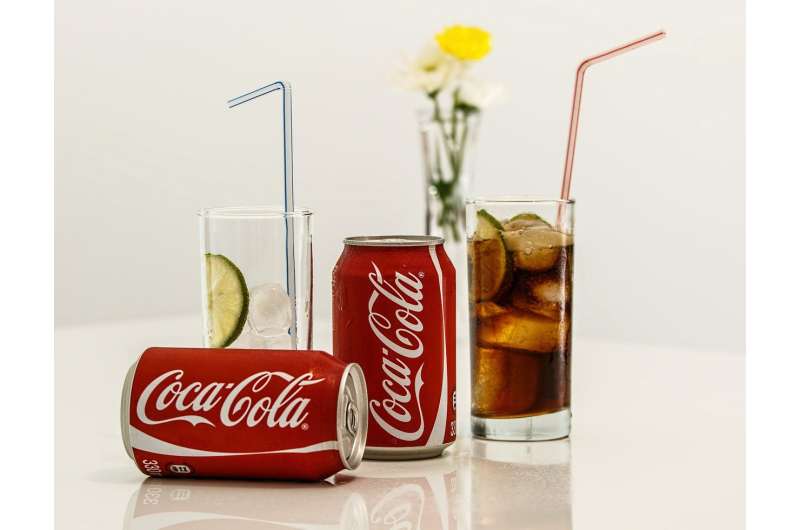This article has been reviewed according to Science X's editorial process and policies. Editors have highlighted the following attributes while ensuring the content's credibility:
fact-checked
peer-reviewed publication
trusted source
proofread
Taxes on sugar-sweetened drinks drive decline in consumption: Study

A new study by researchers at UC Berkeley and elsewhere shows that after excise taxes were placed on sugary beverages, purchases declined dramatically and steadily across five American cities. The findings have been published in JAMA Health Forum.
Although other studies have evaluated the impact of beverage excise taxes—taxes on a per ounce basis–in a single city, this is one of the first that estimates the impact of local excise taxes on purchases and prices of sugar-sweetened beverages across multiple large cities. The cities included Boulder, Philadelphia, Oakland, Seattle, and San Francisco, all of which implemented taxes between January 1, 2017, and January 1, 2018.
Sugar-sweetened beverages—such as sodas, fruit drinks, sports drinks, energy drinks, and sweetened coffee drinks—are the leading source of added sugars in the American diet, according to the Centers for Disease Control and Prevention. They are associated with serious negative health outcomes, including type 2 diabetes, obesity, heart disease, kidney disease, non-alcoholic liver disease, gum disease, tooth decay, and other conditions.
Taxes on these types of beverages are promoted as a key policy to hold beverage companies accountable for and reduce the health harms associated with their products, but comprehensive analyses of such taxes have been difficult due to the absence of sufficiently large samples of data and methodological limitations.
"Estimating a more general, more accurate impact of local sugar-sweetened beverage taxes in the US provides greater insight into the overall effectiveness of these taxes," said study lead author, Scott Kaplan, who is an economics professor at the United States Naval Academy. Kaplan received his Ph.D. from the UC Berkeley Department of Agricultural and Resource Economics in 2021. "This study may better inform the potential effectiveness of SSB taxes at the state or federal level."
This new study builds on an earlier study that looked only at data from the city of Oakland.
The new study found that retail prices of sugar-sweetened beverages increased by 33.1% over the two years following tax implementation in each city studied, and that there was a corresponding decrease in purchases of 33% over the same timeframe. The price increase and purchase decreases appeared immediately after the taxes were implemented and continued to be sustained months later.
At the same time, there was no evidence that consumers were traveling to bordering areas without sweetened beverage taxes to make purchases there.
This study's findings suggest that "these taxes are quite effective in terms of health outcomes and societal cost-savings," said Kaplan. He hopes this may lead to similar policy action in other locations across the country, and at the state and national levels, as was done with tobacco taxes.
A previous study co-authored by Dr. Kristine A. Madsen of UC Berkeley School of Public Health showed that tax revenue from sugar-sweetened beverage (SSB) excise in seven cities were used to support initiatives to improve community health, develop human and community capital, and advance equity.
More information: Scott Kaplan et al, Evaluation of Changes in Prices and Purchases Following Implementation of Sugar-Sweetened Beverage Taxes Across the US, JAMA Health Forum (2024). DOI: 10.1001/jamahealthforum.2023.4737





















